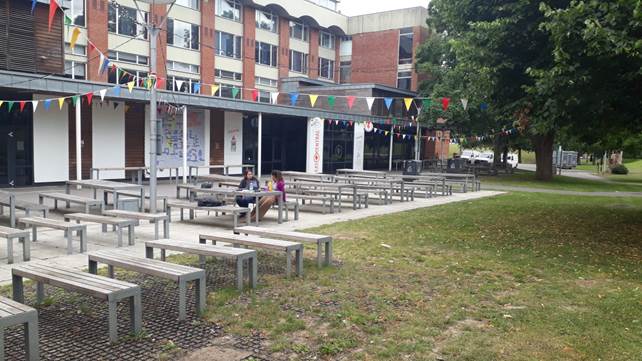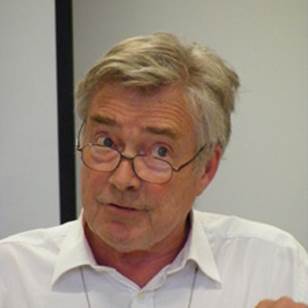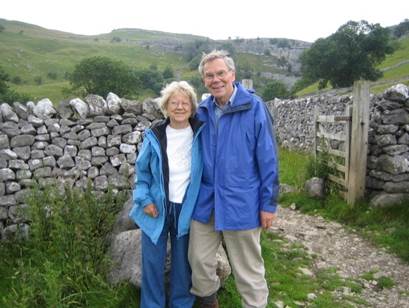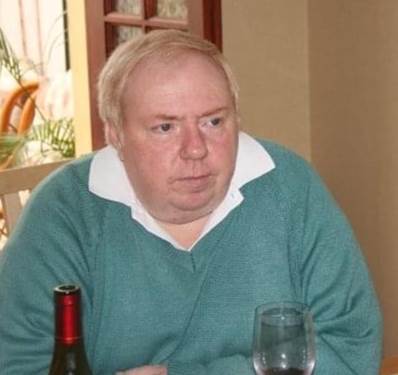THE SUSS-EX CLUB
NEWSLETTER No. 53, Summer 2020
Edited by Adrian Peasgood
A CAMPUS PICNIC FOR SUSS-EX MEMBERS (and friends)
As Covid-19 restrictions continue to impact intended Suss-Ex Club events, we are instead organising an outdoor picnic on campus! Weather permitting, this will enable us to meet in a more safe environment with appropriate social distancing. For those that enjoy walking, we will also be leading one of the many boundary walks around campus. Details are:
1 WHEN: Friday 21st August, 2.00pm to 5.00pm (if weather is poor, the date will roll forward to Friday 28th August)
2 WHAT: A “bring your own” picnic on campus.
3 WHERE:

In front of Bramber House outside Dine Central, opposite Essex House (C6 on the campus
map: https://www.sussex.ac.uk/about/documents/uos-campus-map.pdf)
There is seating outside Bramber House, but if you wish to be sure of seating, you may wish to bring a folding seat of your own (see attached photo of the seating available).
4 HOW: To comply with Covid restrictions on group meetings, we will gather in groups of 6 people. Bring your own food and beverage—although it’s advisable not to share our goodies, we hope to share lots of friendly conversation and laughter!
5 PARKING, etc: Unfortunately, parking charges apply all year round. The charge is £2.50 for up to 3 hours, but no charges apply from 5pm. For information about car park locations and how to pay, see: http://www.sussex.ac.uk/sef/services/transport/campus-parking/parking-for-visitors.
Public transport. Bus and train services are fewer than usual, and should be checked in advance of intended use.
6 BAGGING YOUR SPOT: If you will be joining us, please confirm, including the number of any friends, either by emailing Rossana Dowsett (R.L.Dowsett@sussex.ac.uk) by 18th August, or by confirming attendance on our group Facebook page where the event is posted: https://www.facebook.com/groups/2507222389510329/.
7 CANCELLATION: In the event of poor weather, we will post a cancellation to the Suss-Ex Facebook page on Thursday evening 20th August. If you do not use Facebook, please check your email inbox that evening. We will move the picnic forward to Friday 28th August, if the weather is too poor for the 21st August.
8 OTHER INFORMATION
Bramber House has public toilets on the ground floor.
The Co-op food shop is also open on the ground floor of Bramber House.
We look forward to seeing you!
Rossana Dowsett
POSSIBLE FUTURE EVENTS
It is not clear when arrangements can be made for the possible future events listed in Newsletter 52. The latest positions are as follows.
The deferred talk by Jan Nawrocki must await the return of the NHS to normal operations following the impact of the coronavirus pandemic.
Fishbourne Roman Palace: School holidays in summer 2021 could be an appropriate time to visit, but there are doubts about the viability of the site.
Ridgeview winery (this would be a repeat trip): Likely to be deferred to September 2021.
Another meeting on a medical topic: a possible speaker is being approached.
Shoreham Harbour trip by boat: Journeys may now have to be deferred to summer 2021.
Not previously announced:
Rampion Wind Farm: Several operators offer boat trips to the site. Possible arrangements, covering regulatory compliance and the chance of suitable weather, are being explored.
SUSS-EX CLUB FACEBOOK GROUP
Suss-Ex Club Facebook group gets off to a flying start!
Our new Facebook page was launched in March this year and, at the time of writing about 60 ex-Sussex employees have joined—an excellent start! They include academic staff, administrative faculty, support and technical staff. All members of the Suss-Ex Club steering committee are also on the page and we’d now like to expand the group membership still further. We hope you will now join the page yourself if you haven’t already.
Once people have joined the page they are able to post items that would be of interest to other members. For example, we’d love to see your photos and memories there, including informal events such as parties, sports days etc, but other things too—in fact anything that might be of interest to former University of Sussex staff or a selection of them.
Our Facebook page is here: https://www.facebook.com/groups/2507222389510329 but it’s a private group, which means that non-members won’t be able to see any posts until they have joined. People will of course need a Facebook account in order to join the FB Suss-Ex Club page, so if anyone doesn’t yet have one, they just need to go to https://www.facebook.com and create a new account with their name, email address and password. More details can always be added later (or not). Then put “Suss-Ex Club” into the Facebook search box, select our page and click “+ Join Now”. Because our page is a closed group, there are a few questions to answer about when/where you worked at the University and also we ask you to agree to the group rules, which are all about being kind and courteous, not posting promotions, and a respect for everyone’s privacy so that what’s shared in the group stays in the group.
You’ll then get ‘approved’ some time over the following few days and will be able to see all the posts and comments on the page as well as adding those of your own.
Once you have joined the FB group page, you can also invite any ex-Sussex colleagues with whom you’re in touch to join as well. As we don’t have access to the University’s personnel records, word of mouth and personal encouragement are key to widening our membership and your help in spreading the word to ex-employees and the part retired (not current staff), will be invaluable!
In the meantime, we hope to see you on the Suss-Ex Club Facebook page soon!
Rossana Dowsett and Jackie Fuller
OBITUARIES
In Memory of Julian Perry Robinson (11.11.41 – 21.4.20)
This is an edited version of a longer tribute to JPR collaboratively written by members of SPRU.
By the mid-1970s Professor Chris Freeman had assembled at SPRU (Science Policy Research Unit) a formidable array of talented individuals who were to dominate their respective fields for decades to come. But if one were to ask, ‘Which of the SPRU ‘greats’ did most to enable us all to sleep more soundly in our beds at night?’, the answer is simple: Julian Perry Robinson. One of the most self-effacing of academics, he would doubtless be the first to dispute this, yet through his efforts over more than 50 years, first at the Stockholm International Peace Research Institute (SIPRI) and then at SPRU, Julian—aided by his partner, Mary Kaldor, and by his long-standing collaborator at Harvard, Professor Matthew Meselson—had an unparalleled influence in the shaping and implementation of the international conventions that have helped prevent chemical and biological warfare from breaking out during our lifetimes. For this, we are all truly in his debt.

A trained chemist and patent lawyer, Julian possessed the ideal background to wrestle with the thorny issues regarding how to prevent chemical and biological warfare (CBW). Working at SIPRI in the late 1960s and early 1970s, Julian was the principal author of the six volumes on The Problem of Chemical and Biological Warfare, a work that remains a seminal source of historical, legal and scientific information on CBW and required reading for all those entering the field. He also produced ground-breaking reports on CBW for the United Nations and the World Health Organization. These were all essential inputs in the negotiation of the Biological Weapons Convention.
It was at SIPRI that Julian met and teamed up with Mary Kaldor. In 1971 they left to join Sussex University and subsequently SPRU, where they established and led the Military Technology and Arms Limitation (MTAL) Group and the Armament and Disarmament Information Unit (ADIU). Julian and Matthew Meselson set up and ran the Harvard-Sussex Program (HSP), with the two of them editing The CBW Conventions Bulletin (published quarterly from Sussex), the journal of record in the field. Together, they and their colleagues built up an unrivalled archive of publications, reports and grey literature on CBW and on military armament and disarmament more generally.
Julian, Matthew and their HSP colleagues provided rigorous evidence-based information and argument that have helped sustain work in the UK and elsewhere in negotiating and implementing the Chemical Weapons Convention (CWC), maintaining the effectiveness of the Biological Weapons Convention (BWC), and sustaining the overall efficacy of the international regime against the misuse of biology and chemistry. Julian himself is widely credited with defining the principal criterion for judging the worth of possible multilateral agreements on chemical weapons: not, ‘Is the agreement verifiable?’, but instead, ‘Will we as a state be better off inside the agreement than outside it?’.
The HSP research had a number of specific impacts. One involved the ‘yellow rain’ controversy. In 1981 the U.S. Government accused the Soviet Union of supplying T-2 mycotoxin to Communist states in Vietnam and elsewhere. Refugees described attacks supposedly involving sticky yellow liquid being dropped from planes or helicopters. However, work by Julian and other independent scientists revealed that the ‘yellow rain’ was due to mass defecation of digested pollen by large swarms of bees, probably one of the very first examples of the debunking of ‘fake news’!
For 40 years Julian was a central figure in Pugwash, the international organization that through its Conferences on Science and World Affairs brings together scholars and public figures to work towards reducing the danger of armed conflict and to seek solutions to global security threats. Julian did much to advance the cause of a Chemical Weapons Convention. Under his guidance, the pioneering work on the philosophy and design of on-site industry inspections allowed prominent figures in the chemical industry to become aware of the demands that CW disarmament would place on their corporations. This eased the way for CWC negotiators when they later drew industry into their talks.
Julian served as an advisor or consultant to numerous national and international organizations, both governmental and non-governmental, including the World Health Organization (WHO), other parts of the United Nations system, the International Committee of the Red Cross, the UK National Authority for the Chemical Weapons Convention, and the Commission of the European Communities.
Julian formally retired in 2007 but continued to work on the use of chemical weapons in Syria as well as on novichok following the Salisbury poisonings.
In terms of personal qualities, Julian, besides being totally dedicated to using his research to help make the world a better place, was one of those increasingly rare individuals in academia—unassuming, selfless, ever willing to help others and to put others before himself. When the time came for Julian to be promoted to a professorship, one problem immediately presented itself. Unlike virtually all other academics who keep updating their comprehensive CVs, adding each paper and invited lecture as soon as it happens, Julian had no such CV and indeed little apparent inclination to produce one! When encouraged to submit himself for promotion, he resisted for several years, arguing that he would then have to raise more money to cover his increased salary!! Eventually his CV was compiled by his partner Mary and, confronted with the most fulsome reviews from extremely eminent referees around the world, the committee quickly concluded that Julian should be made a professor and the consensus was that this promotion should have happened 10 years earlier!
One of Julian’s few personal extravagances was his love of classic sports cars. He was a familiar sight driving onto campus in his beloved Morgan (a 1930s-style English sports car), built by hand and with a wooden body substructure made of ash.
Julian Perry Robinson epitomised the values the SPRU founders espoused: putting real world problems first, the melding of different disciplinary perspectives, an internationalist perspective, nurturing the development of students and young researchers, intellectual generosity, and a recognition that research benefits from working together rather than engaging in individualistic competition. Julian will be greatly missed.
Jackie Fuller
Peter John Bushell 15.2.34 – 26.5.20
Peter began as a Lecturer at Sussex on 1st October 1964 and retired as an Emeritus Professor on 30th September 2001.
He was born in Eton in Buckinghamshire (now in Berkshire), and went to school in Aberdeen, where he also gained his first degree. He then went to Oxford for a second undergraduate degree, followed in 1961 by a DPhil. After several years teaching at Oxford University and a year at Dartmouth College in the USA, he made his career at Sussex.
At Sussex, he taught a wide variety of courses and was known for his lapidary gift of clarity
as a lecturer. Another gift was that
of unshakeable optimism, which helped carry him through service as Chairman of Mathematics from 1980 to 1983,
a time of deep cuts and
uncertainty. Later he was the founding Dean of the then School
of Mathematical Sciences, from 1995 to 1998. Earlier, he had been Warden of the Isle of Thorns, a conference
centre at Chelwood Gate that the University had on long lease. 
Regarding research, Peter was an analyst, whose research contributions were charac- terised by elegance and ingenuity. A striking illustration of his work is given by his papers on the Cayley-Hilbert metric, in which he displayed considerable intuition and insight when establishing the existence of fixed points of certain nonlinear maps and of solutions of nonlinear differential equations, both ordinary and partial. He was an absolute master of classical analysis, his encyclopaedic knowledge being indispensable in his widely quoted work on p-trigonometric functions and their connection with the p-Laplacian. He had high standards and an ability to get to the heart of the matter with minimum fuss. His last paper, with David Edmunds, in 2018 was ‘The evolution of PDEs (partial differential equations) in the UK’.
He is survived by his wife June, two sons and six grandchildren.
James Hirschfeld, with David Edmunds and Charles Goldie
Steve Rogers, d. 19 May 2020
The University has recently lost one of its longest-serving staff members in Steve Rogers, who passed away on 19th May, aged 60. Steve joined the Physics Department within MAPS in 1977, straight from the sixth form at Brighton and Hove Grammar School (now BHASVIC).
 After training as
a Junior Technician and taking his HNCs, for many years Steve worked with
Francis Fernando to run the Cryogenic Services within Physics. They made a
well-matched and dedicated team, with Steve’s meticulous monitoring of usage
and stocks complementing Francis’ mechanical nous to provide grateful users
across campus with very large quantities of liquid helium and nitrogen.
After training as
a Junior Technician and taking his HNCs, for many years Steve worked with
Francis Fernando to run the Cryogenic Services within Physics. They made a
well-matched and dedicated team, with Steve’s meticulous monitoring of usage
and stocks complementing Francis’ mechanical nous to provide grateful users
across campus with very large quantities of liquid helium and nitrogen.
Steve continued to run the service after Francis retired but with the reduction in low temperature research, on-campus production was eventually closed down upon the advent of CPES. In addition to overseeing all gas supplies and related safety issues within this new School, Steve demonstrated great versatility in dealing with a wide variety of other problems, a characteristic which earned him many friends.
In 2000 Steve also assumed technical responsibility for setting up and managing the “Schools Lab”. The initiative for this came from a local physics teacher, David Daniels, and involved groups of GCSE and A-level pupils from nearby schools spending a day on campus carrying out syllabus-enriching experiments. The vital role Steve played in developing this activity brought him much satisfaction and fulfilment.
Steve continued to manage this lab through the various School restructurings during which times it was also used intensively by the International School and the Foundation Year. Over the past decade, Steve also worked closely with Darren Baskill on the development and delivery of an extensive Physics and Astronomy Outreach programme, in which the Schools Lab continues to play a pivotal role.
As a result of complications following a hip fracture in 2009, Steve spent several protracted periods in hospital and did not enjoy the best of health thereafter. Despite this, he continued cheerfully with an always careful and precise approach in all that he did. He is survived by his sister Suzanne and his two nieces, Hannah and Rebecca, on whom he doted and of whose achievements he was intensely proud.
Mike Hardiman and Malcolm Strong
Suss-Ex
Patron: Sir Gordon Conway
The website
More information about Suss-Ex is available on its webpage at http://www.sussex.ac.uk/suss-ex/. ‘Suss-Ex Club’ in Google will get you there, as will http://tiny.cc/sussex, or you can find us in the A–Z on the University’s homepage The website has copies of past Newsletters.
The Steering Committee
Suss-Ex activities are organised by a steering committee, which currently comprises:
Ross Dowsett Rossana.Dowsett@ntlworld.com
Colin Finn colinfinn@btinternet.com
Jackie Fuller jkfuller21@hotmail.com
Charles Goldie c.m.goldie@sussex.ac.uk
Arnold Goldman a.goldman@cowbeech.f9.co.uk
Steve Pavey miniperson2003@yahoo.co.uk
Adrian Peasgood adrian@peasgood.plus.com
David Smith j.d.smith@sussex.ac.uk
Paul Tofts uos@paul-tofts.org.uk, chair
Helen Walker helenjwalker@btinternet.com
Ideas for the future
We are always seeking ideas for social occasions when we can meet former colleagues. Please let us have your suggestions, or volunteer to join the committee. We meet once a term, when practicable immediately before a Suss-Ex event.